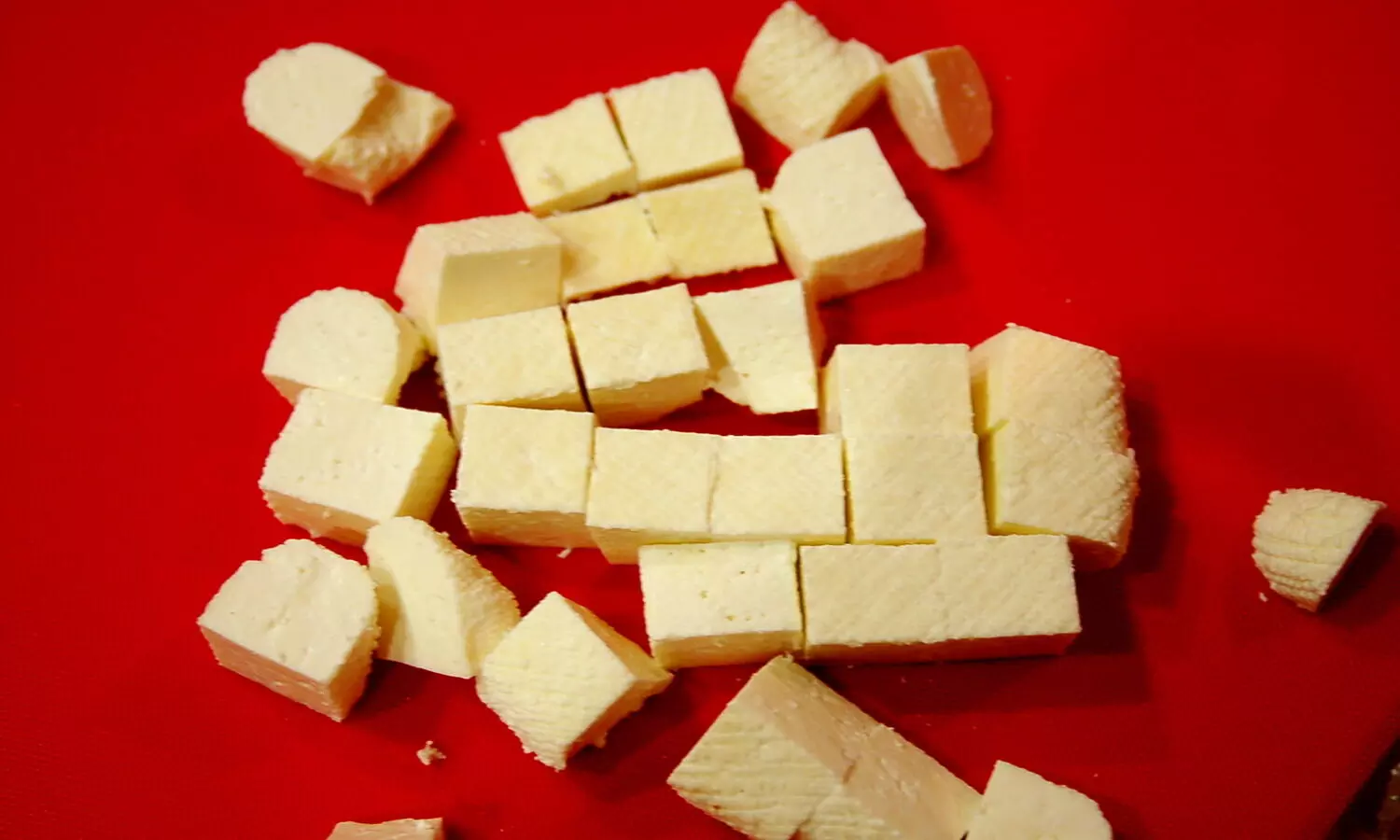How to Identify Fake Paneer: FSSAI Issues Public Alert
Paneer sold in markets may be adulterated with starch and detergent. FSSAI shares ways to detect fake paneer using quick household checks.
image for illustrative purpose

Paneer has been identified as India’s most adulterated food item, the Food Safety and Standards Authority of India (FSSAI) reported Tuesday. An FSSAI survey conducted in April 2024 found that 47 of 168 paneer and khoya samples failed safety parameters. Earlier this year, enforcement teams intercepted and destroyed 1,300 kg of fake paneer on the Mumbai-Delhi Expressway.
The FSSAI report cited addition of starch, detergent and formalin in paneer samples. Starch cuts protein content. Detergent can cause gastrointestinal distress. Formalin, used as preservative, poses risk of tissue irritation.
To help consumers guard against paneer adulteration, the FSSAI has outlined three home tests:
1. Iodine Test
Boil a small paneer piece in water. Add a drop of iodine solution. A blue reaction signals starch presence. No color change indicates absence of starch.
2. Dal Test
After boiling and cooling paneer in the same water, add raw toor dal and wait 10 minutes. A shift to pink or light red suggests contamination. Water that remains clear indicates no reaction.
3. Texture and Taste Test
Cut a corner of paneer and press it. Genuine paneer will show even resistance. Place a small piece on the tongue and note any change in taste. A detectable shift may indicate additive.

